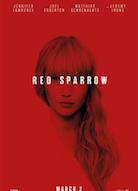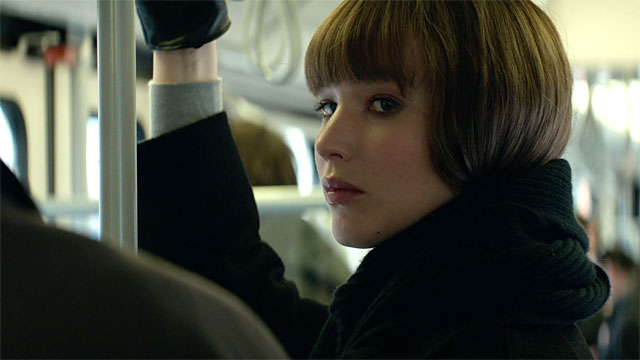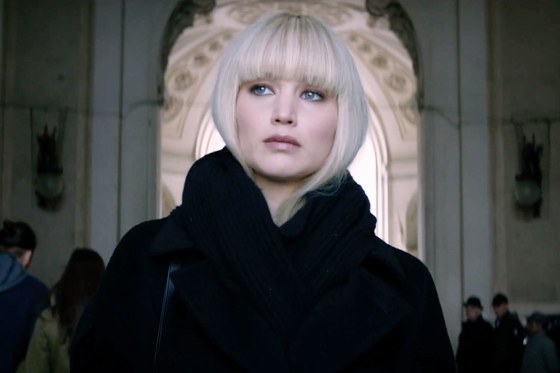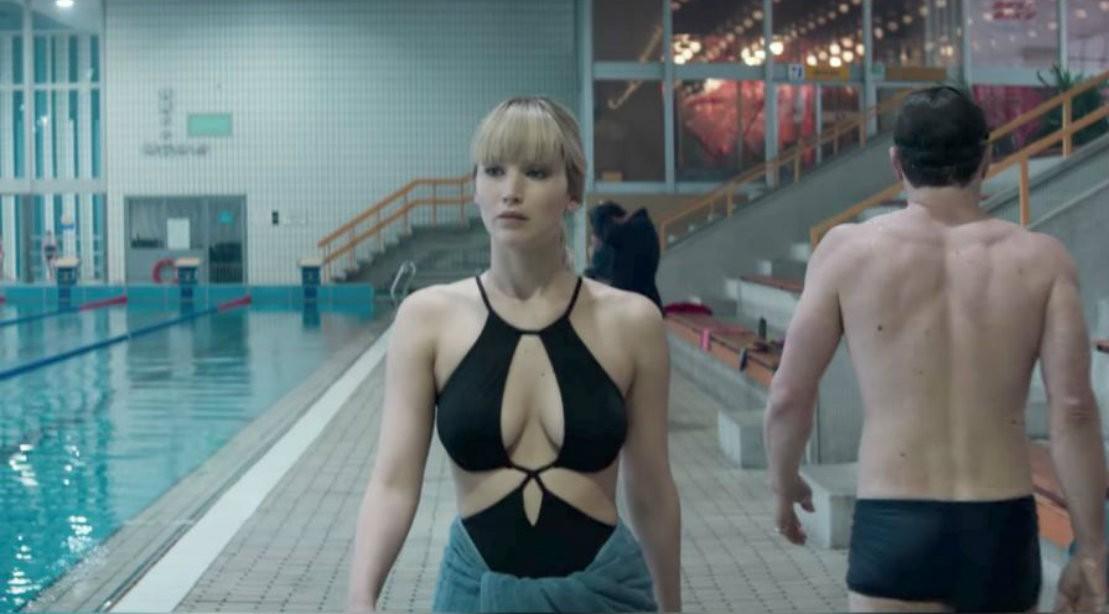by Eric Blume
 The Russian Tourism Board won’t likely be sponsoring the film Red Sparrow, the new spy movie from Hunger Games director Francis Lawrence. Other than featuring some very chic ushankas on a very attractive cast, this film makes Russians look very nasty, just like we’ve always imagined them to be for the movies. Lawrence’s conception of the country illustrates his wonderfully corny, often thrilling, mysterious, and silly/serious approach into old-fashioned espionage that we don’t see much of nowadays.
The Russian Tourism Board won’t likely be sponsoring the film Red Sparrow, the new spy movie from Hunger Games director Francis Lawrence. Other than featuring some very chic ushankas on a very attractive cast, this film makes Russians look very nasty, just like we’ve always imagined them to be for the movies. Lawrence’s conception of the country illustrates his wonderfully corny, often thrilling, mysterious, and silly/serious approach into old-fashioned espionage that we don’t see much of nowadays.
Lawrence starts his film where he should: firmly on the face of his leading lady, Jennifer Lawrence, sporting a bangs-heavy brown wig. She’s a famous ballet dancer in Moscow, and the director steals a bit of the feverish tone of Black Swan in her early scenes. The plot unravels in a series of crosses, double-crosses, and reverses that include her involvement with a US spy played by Joel Edgerton...

The script by Justin Haythe has some legit structure and verve, and the movie keeps you on your toes. The highlight of the film is a completely out-there set piece where Jennifer’s uncle (Matthias Schoenaerts) sends her off to a Russian manor house in the countryside where Charlotte Rampling puts potential young spies through some sort of crazy sex exercises to test their resilience. The whole sequence is absolutely bonkers, presented in a very frank adult manner, and it’s some sort of testament to Francis Lawrence’s talent that these scenes, which should be ludicrous, have a weird, foreign tension to them that transcends camp. I can’t think of a major Hollywood release that includes scenes this kinky and bizarre, and even though this stretch doesn’t make sense, it sure is ballsy. It also sets up the film’s best line, when Jennifer later tells Schoenarts, “you sent me to whore school” in a glorious Boris-and-Natasha accent.
Jennifer Lawrence remains a creature who seems born for the movies. She’s effortlessly compelling, and she charges into all of her scenes with authority and simplicity. But Francis Lawrence isn’t the best director for her, because he doesn’t know how to capitalize on her strengths and properly hide her weaknesses.

Jennifer has very little actual technique, but she’s phenomenal on instinct. She’s so in the moment that everything she does feels unpredictable. A director like David O. Russell pushes her instincts to the extreme: it’s what makes her performance in American Hustle so controversial. In that film, you can see that her lack of technique keeps the character from coalescing into a coherent whole, but then again what she’s doing is so alive and vital and original that she creates a loopy beauty that’s even more interesting than a traditional approach. Without being pushed, however, Jennifer can fall into a certain flatness, which happens here and there in Red Sparrow. But then just when you’re about to write her off in this movie, Jennifer will play a moment so directly, with such economy, and have such power playing it, that all is forgiven. She may not yet be a great actress, but there truly is nobody else working in movies quite like Jennifer Lawrence.
The rest of the cast acquit themselves admirably. Mary-Louise Parker shows up for two big scenes that she plays in that zany ML-P way that nobody else would ever think of doing. She adds a juicily comic dimension to a piece that really needs that levity, and when her scenes are over, you wonder why she doesn’t get more work.

Red Sparrow is terrific fun. Every actor has a different accent, and there’s hats and wigs galore. Francis Lawrence doesn’t have a unique flair, or any sense of gonzo theatricality that can lift the material. But he’s a strong craftsman, and not only does he deliver on the tension when needed, he also has the confidence to slow down the non-action sequences, trusting that the audience will be hooked by Jennifer and the tried-and-true tropes of the genre. The movie is often great and bad within the same scene, so there’s plenty of pleasure to be had.